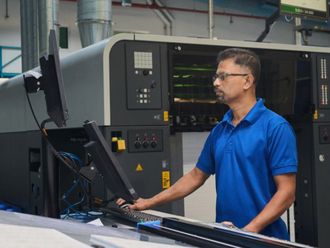Trucks of workers and building materials hurtle through the mining town of Likasi at the heart of Congo’s copper producing south, evidence of the billions being poured into the region after years of war and underinvestment. But rebel fighters feeding off local grievances and secessionist sentiment are threatening to resurrect the spectre of a southern breakaway, in a fresh challenge to the stability and integrity of the Democratic Republic of Congo.
The rebels, estimated to number anything from a few hundred to a few thousand, armed with bows, arrows and assault rifles, could re-open decades-old political fissures in Katanga, Congo’s economic engine but also its most independent-minded province.
Their forays south, away from their stronghold in the province’s north and towards Katanga’s mining heart, raise the stakes in a region that is also a power base for a government already stretched by a separate insurgency in the east.
Medecins Sans Frontieres is one of a handful of aid organisations in Katanga operating in the vast and virtually roadless northern area known to locals as the “Triangle of Death” in reference to atrocities including massacres, rape and cannibalism carried out by the rebels, known as the Mai Mai.
“The Mai Mai are coming out of their normal zone within the triangle. Since December we’ve seen an intensification of clashes with the army,” said Pascal Duchemin, head of MSF-Holland in Katanga’s capital Lubumbashi.
While international attention has focused on a rebellion along Congo’s restive eastern border with Rwanda and Uganda, the violence in Katanga has simmered largely unnoticed.
MSF has been forced to reduce its presence because of security concerns in the north, where it reports empty, burnt villages for kilometres at a stretch. Footage shot by a local journalist shows Congolese troops marching through hamlets gutted by fire and families housed in makeshift bush shelters.
Since 2011, starting in Katanga’s remote and desperately poor northeast, Mai Mai fighters — a coalition of hardline Katangan secessionists and remnants of militias left over from Congo’s last war — have forced more than a quarter of a million people from their homes, according to the United Nations.
Now they are pushing south, with attacks reported in January just 70 km from Likasi, and have also moved into artisanal mining areas, where a traumatised population is fleeing to escape them. Government soldiers are also accused of pillaging.
Earlier this month at least 14 bodies, including women and children, washed up in a river near President Joseph Kabila’s hometown of Manono, an area where both Mai Mai and the army are active, and where the UN has reported civilian killings by the rebels and summary executions by the security forces.
The rebels have also been blamed for repeated assaults on the airport in the regional capital Lubumbashi over the last two years, in which presidential guardsmen have been killed. “The population is afraid of the army as well as the Mai Mai, and we’re worried for those who are living in the bush, because anyone found there can be considered as a rebel,” Duchemin adds.
Moving south
Katanga, a province roughly the size of Spain, was the heart of central Africa’s colonial mining industry, its growth fuelled by Belgium’s Union Miniere du Haut Katanga, which produced tonne upon tonne of copper and also the uranium for the atomic bombs dropped on Japan in 1945.
Decades of corruption and a brutal civil war brought Katanga to its knees. Relative stability since the 2003 peace deal and ensuing elections, plus high metal prices, brought private miners. Officials say Congo’s copper exports jumped to 600,000 tonnes in 2012, from under 20,000 a decade ago.
Copper giant Freeport McMoRan, trader and miner Glencore and others have invested billions to tap Congo’s high-grade deposits. All plan further growth.
So far, the rebels have mostly hit civilian and government targets, though one international mine executive said company buses carrying miners to work had been hijacked. The region’s major miners declined to comment, but several operators active in the region expressed quiet concern at what could shift from being a sideline annoyance to a major disruption.
“It’s expanded geographically from being in a fairly remote and isolated part of Katanga,” Neil Wigan, Britain’s ambassador to the country, said in Lubumbashi.
“As it pops up in more places, then security becomes a problem. As we’ve seen in Algeria, natural resources companies need to be particularly alert to security constraints at the moment,” he added, in reference to the recent hostage crisis at an Algerian gas plant in which at least 80 people died.
The government is keen to downplay the threat in a region that draws the vast majority of its big international investors.
“We want to re-assure investors there’s no big security risk in Katanga. In any post-conflict state there will be some residual elements, that we will permanently neutralise,” Prime Minister Augustin Matata Ponyo Mapon said.












